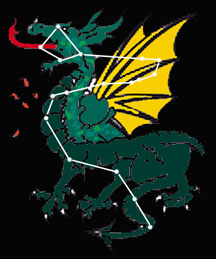

| My
therapist says it may help me if I write it all down. I know
my husband's death wasn't all my fault. But I feel I am partly to blame. I should have tried harder to stop him. Phil should have known better, though. That's what I keep telling myself. The mysterious circumstances of his grandfather's death should have tipped him off. The old magician had been found face-down in a snowy field in Albany where he lived, his body badly burned. But not enough to have killed him. The autopsy revealed that he had died of a heart attack. Police took pictures of animal tracks in the snow; analysis of the footprints confirmed they were from a large dog. The tracks simply ended a few feet from his grandfather's body, around which all the snow had completely melted. He showed no sign of having been mauled. Preferring to recall the living man rather than his bizarre death, Phil had fond memories of the old magician entertaining his whole extended family with various card tricks and with disappearing kittens and scarves. The magic shows took place in the living room of Grandpa Nolano's great old house on a small sidestreet off Delaware Avenue. 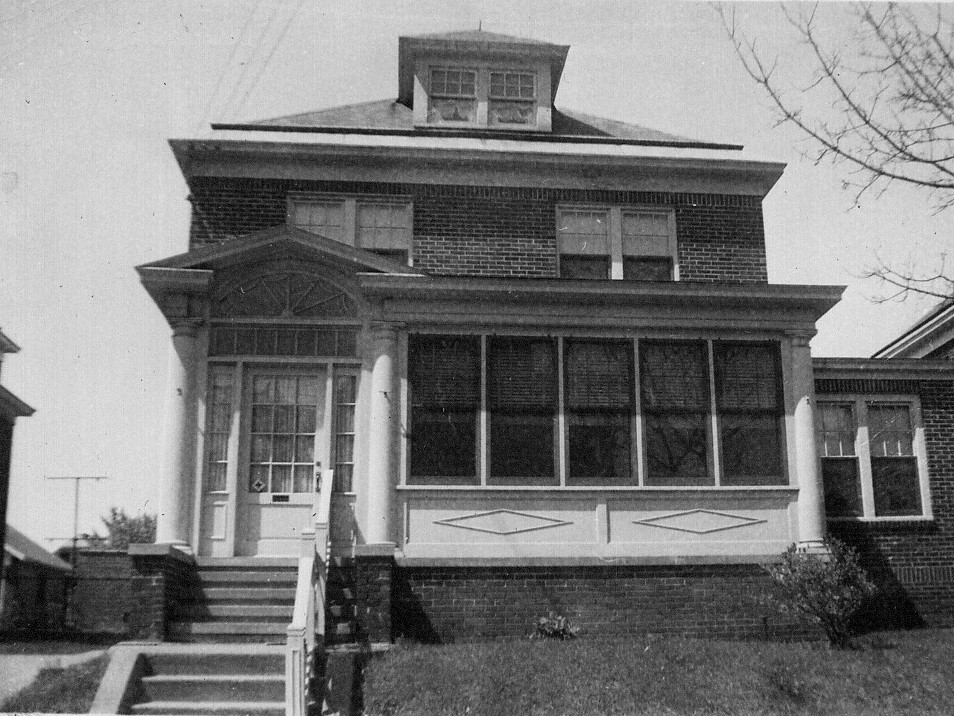 After the show he would take people—adults only—upstairs individually for readings. He died before Phil was old enough for the trip upstairs. So for most of his life Phil never knew why those tarot readings always made his relatives come down the stairs with expressions ranging from quizzical to freaked. I guess Phil inherited that magic gene. He also inherited Grandpa Nolano's Book. The cloth cover was stained and tattered after a century of being passed down through several houses in the family, on various dusty shelves, in scorching attics, in musty basements. Published in Naples in 1900, its pages by 2002 were foxing yellow tending to brown and crumpling—as Phil learned the first time he tried merely flipping through it. That was when he noticed the illustrations: all were drawings of Italian Tarot cards, which made sense with the book’s title, Fortuna Tarocchi. Since Filippo Nolano, before emigrating, had been a professional magician in Naples, Phil assumed the book his grandfather had written was a manual for card-readers. 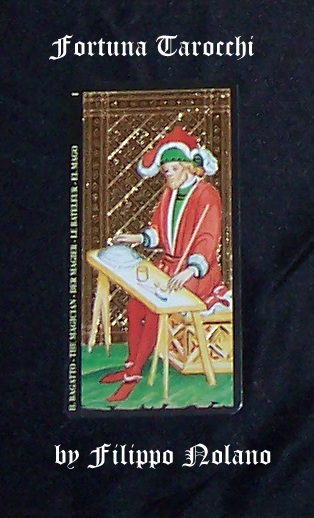 No one else in the family had ever cared about the book, and it was obvious to Phil’s father Vince, who had noticed that his son’s big nose was often buried in books anyway, that Phil took after his nonno namesake, so he gave the old man’s tome to Phil. After taking Italian in college, he was able to translate most of it, enough to realize that it was not merely about reading fortunes with tarot cards. It was more about casting spells with them. Unfortunately, he found one he just knew he had to try--in the chapter entitled Smettere il trionfo bestiale, “To Discard the Beast Trump.” This excerpt from the book has not been chosen at random: |
In
1577, during a lecture
tour in Venice, the magus Giordano Bruno had a brief but intense
friendship with courtesan poet Veronica Franco.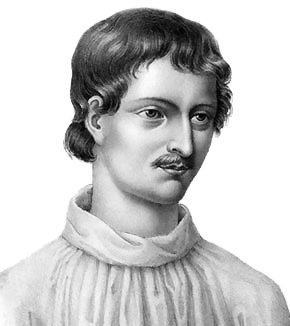 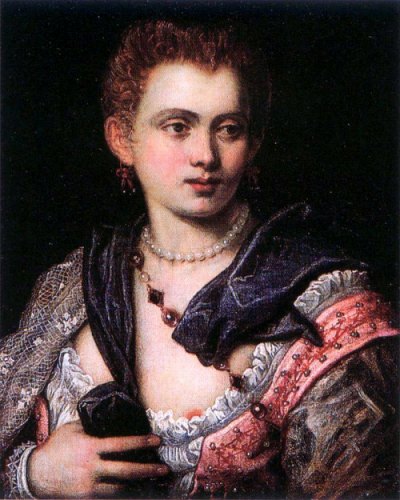 [I am aware of no actual historical evidence that Bruno & Franco knew each other. Phil said Grandpa Nolano never revealed his sources]. Fourteen years later, in 1591, when Bruno returned to Venice just before Franco died, she tried to convince him not to accept the patrician Mocenigo’s invitation to lodge in his palazzo, earning sumptuous room and board simply by teaching the nobleman the art of magic. In spite, or rather because of her love for Giordano, the ailing but no less intuitive Veronica warned him that he should get out of Venice before it was too late. Signor Mocenigo was setting a trap for the magus whom he really considered a heretic. Bruno didn’t heed Veronica Franco's warning, and let us never forget what happened to him nine years later, in 1600—he was burned at the stake in Rome. On the very spot where he was executed, in the Campo de' Fiori, his colossal statue has stood since 1889, darkly hooded and defiant. 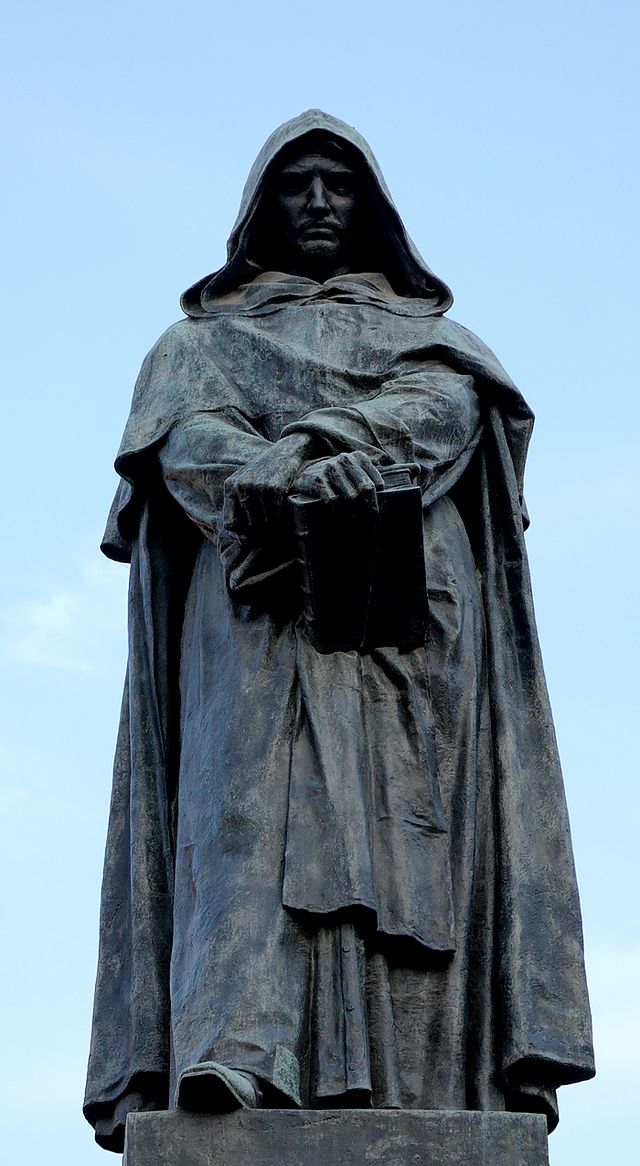 Tarot cartomancy was not widely known until the eighteenth century, but Veronica was well ahead of her time in many ways; she used tarocchi cards to divine that the wealthy weasel Mocenigo meant Bruno no good. The magus did not accept the reading because he rejected the idea that cards, normally used in frivolous pastimes, could work divination. Veronica took the secret of their magic to her grave, since after she died one of her servants burned her spell books and all other evidence that the Inquisition might have been right about her: the courtesan was a sorceress. Indeed she had been powerful enough to elude the Inquisitors, even to vanquish them in her trial. Something not even Bruno would be able to do. He believed cards were vulgar, even the beautiful gold-plated Visconti-Sforza deck Veronica used. It didn’t even matter that she was an honored courtesan; cards were beneath the dignity of a master magus. He never fully realized the extent to which she had based some of her tarocchi spells on his own occult system of magic, hidden in his great allegory The Expulsion of the Triumphant Beast. 
In 1591, that last time they were together, she told him, “For me, the triumphant beast is the Beast trump.” “O veramente? What was that?” “An exorcism of the night sky. I rid the constellations of harmful phantasms, powerful spirits put there by the Greeks. I cast a spell to cast out the bestial daemons.” “I haven’t noticed any change in the sky, Signore. Just last night I saw both the centaur and the scorpion.” 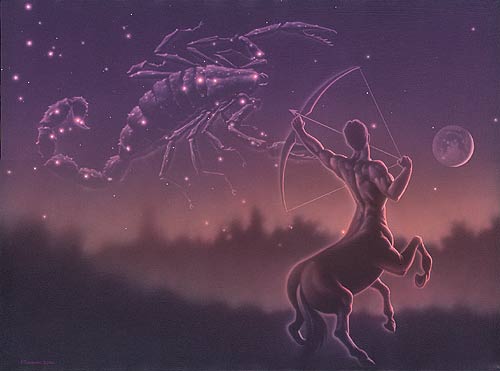 “Only because you have been trained to see them so.” She continued to humor him. “So why did you do it? You never had anything against pagans before.” "I love the Egyptians, not the Greeks. The Greeks walled us in under a dome of woe. Their beastly chimeras in the sky embodied every human vice. I exorcized them from the sky, replacing them with various virtues, Ideas through which the infinite universe may be glimpsed.” She shook her head. “Vice still rules, Giordano. Trust me, I have known so many men in so many ways, men are as beastly as ever. I often think most men are more beastly than beasts. What good did your exorcism do?” “It is too early to tell. It cleared the sky. What will follow to fill the gap, I do not know. My fervent hope is that the new century will be a new Golden Age, free of the firmament of woe and war the Greek magi unwittingly created, open once again to infinite new worlds.” “Don’t prattle to me of your infinite worlds again, Giordano. I will be flying to one of them all too soon.” |